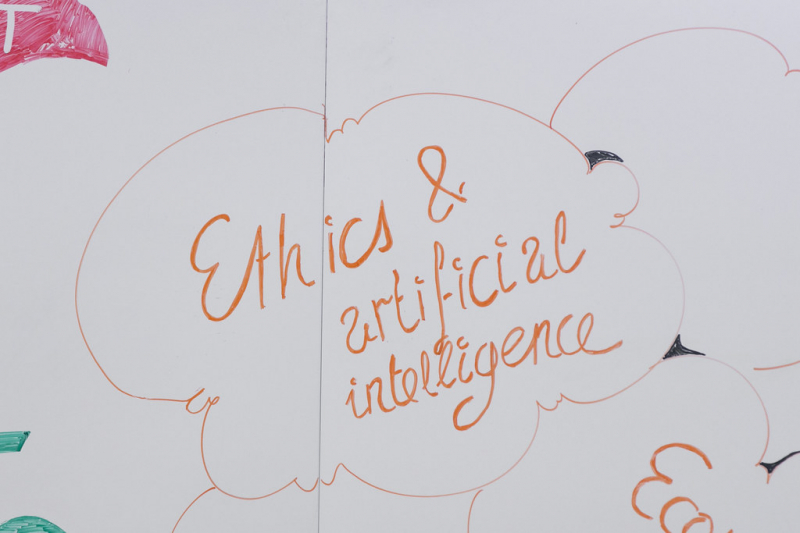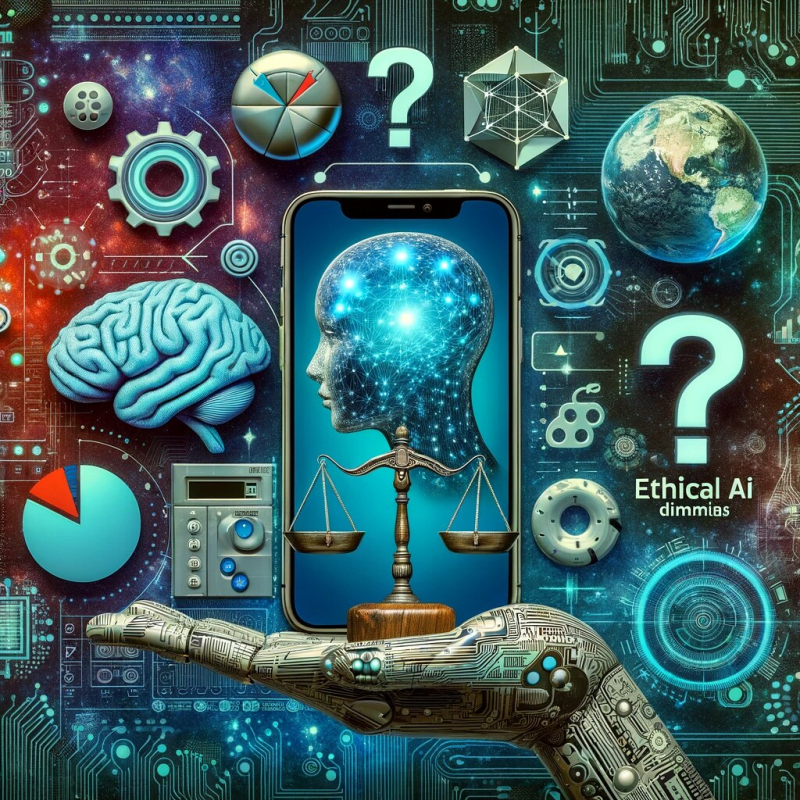Ethics of Artificial Intelligence
Topic: The ethics of artificial intelligence (AI) is a complex and evolving field that involves examining the moral and societal implications of AI technologies. Explore different dimensions of AI ethics.
Answer:
Artificial Intelligence (AI) stands at the forefront of technological innovation, offering unprecedented opportunities and raising profound ethical questions. This essay critically examines the ethical dimensions of AI, exploring both its potential benefits and the moral challenges it poses to society. As AI becomes increasingly integrated into our daily lives, understanding and addressing these ethical quandaries are crucial for fostering a responsible and humane development of this transformative technology.
Artificial Intelligence holds immense promise in revolutionizing healthcare, offering improved diagnostics, personalized treatment plans, and innovative research possibilities. AI-powered systems can analyze vast datasets, leading to quicker and more accurate medical diagnoses. This has the potential to enhance patient outcomes, reduce healthcare costs, and contribute to medical advancements. However, ethical considerations arise concerning patient privacy, consent, and the responsible use of sensitive health data.
The proliferation of AI technologies brings with it the specter of job displacement, particularly in industries where automation can replace human labor. While AI can enhance efficiency and productivity, it may lead to economic inequality as certain sectors face unemployment challenges. The ethical imperative lies in addressing these social and economic disparities, ensuring that the benefits of AI are equitably distributed and that society is prepared to navigate the shifting landscape of the job market.
AI systems are not immune to inheriting and perpetuating biases present in their training data. This raises ethical concerns, especially in applications such as hiring, lending, and criminal justice, where biased algorithms can reinforce existing societal inequalities. Striking a balance between the potential benefits of AI and the mitigation of biased outcomes requires continuous monitoring, transparency in algorithmic decision-making, and an ongoing commitment to rectify and prevent discriminatory practices.
As AI systems collect and analyze vast amounts of personal data, concerns about privacy infringement become paramount. The ethical dilemma lies in balancing the need for data-driven insights with the protection of individual privacy. Implementing robust data protection measures, informed consent mechanisms, and clear regulations are essential to mitigate the risk of unauthorized access, misuse, or the creation of surveillance states.
The development of AI-powered autonomous weapons introduces a new ethical frontier. Questions surrounding the loss of human control, accountability, and the potential for these weapons to escalate conflicts raise serious moral concerns. Crafting international agreements and ethical frameworks to govern the development and deployment of autonomous weapons is imperative to prevent the misuse of AI in warfare and to ensure that ethical considerations guide decisions in matters of life and death.
In conclusion, the ethical landscape of Artificial Intelligence is complex and multifaceted. While AI holds immense potential for societal benefit, its ethical challenges demand meticulous attention and proactive solutions. As we navigate the uncharted waters of AI development, a commitment to transparency, accountability, and continuous ethical scrutiny is essential. Only through collective responsibility and a steadfast dedication to ethical principles can we unlock the full potential of AI for the betterment of humanity while safeguarding against its potential pitfalls. The ethical trajectory of AI is a dynamic narrative, one that requires vigilance, adaptability, and an unwavering commitment to the moral compass that guides its evolution.












